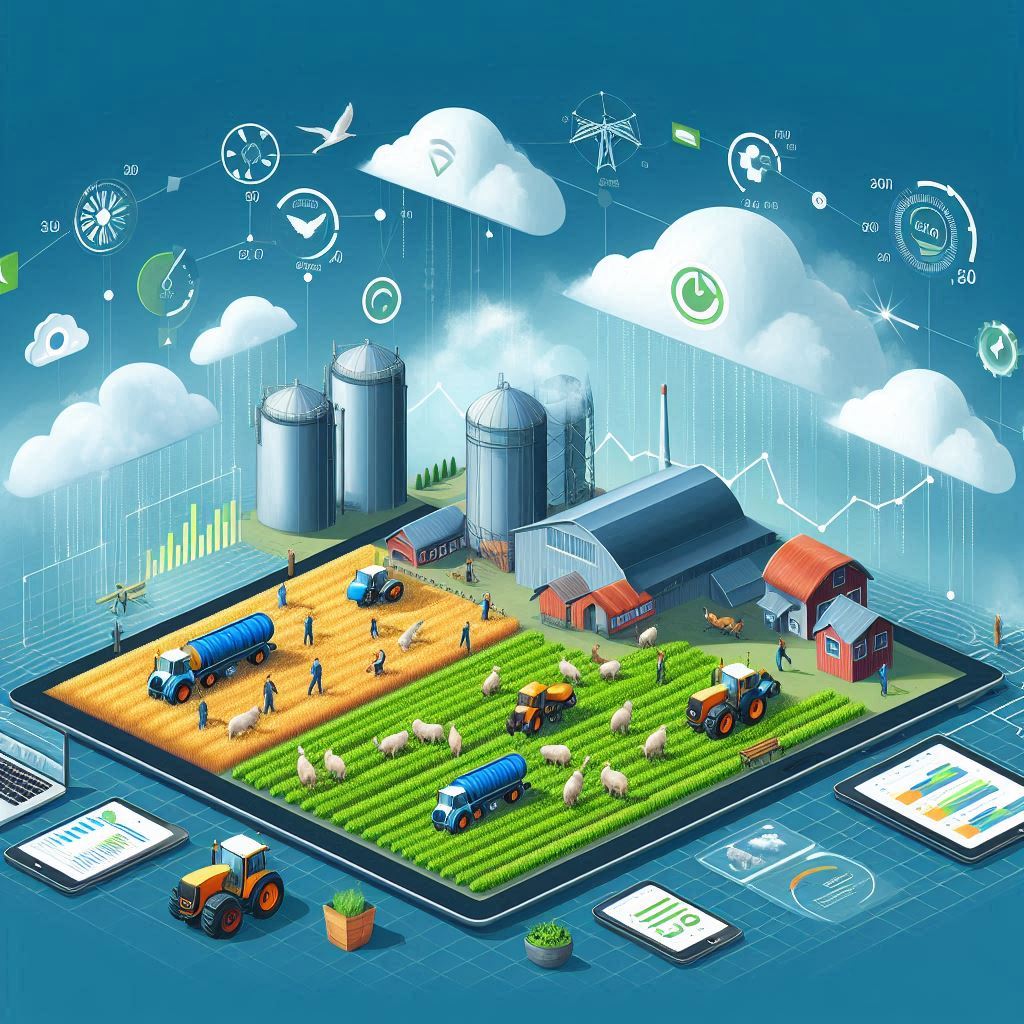In today’s rapidly evolving agricultural landscape, business intelligence is transforming livestock management by enabling farmers to make data-driven decisions that enhance productivity, efficiency, and sustainability. The integration of advanced technologies such as IoT sensors, machine learning, and data analytics is revolutionizing how livestock operations are monitored, managed, and optimized.
The Role of Business Intelligence in Livestock Management
Business intelligence (BI) tools gather, process, and analyze vast amounts of data from various sources, providing actionable insights that drive better decision-making. In livestock management, these tools offer several key benefits:
Enhancing Animal Health and Welfare
One of the primary ways business intelligence is transforming livestock management is by improving animal health and welfare. Through real-time monitoring systems, farmers can track vital signs, behavior, and environmental conditions. This data helps in early detection of diseases, stress, and other health issues, enabling timely intervention and reducing mortality rates.
Optimizing Feed and Nutrition
BI tools can analyze data on feed consumption, nutrient intake, and animal growth rates. By understanding these patterns, farmers can adjust feeding strategies to ensure optimal nutrition and growth. This not only improves animal health but also maximizes feed efficiency, reducing costs and environmental impact.
Streamlining Breeding Programs
Effective breeding programs are crucial for maintaining healthy and productive livestock populations. Business intelligence systems can analyze genetic data, performance records, and reproductive history to identify the best breeding pairs. This enhances genetic diversity, improves offspring quality, and accelerates genetic gains.
Managing Farm Operations Efficiently
Operational efficiency is essential for the profitability of livestock farms. BI tools can track and manage various aspects of farm operations, such as labor, equipment usage, and resource allocation. By identifying inefficiencies and bottlenecks, farmers can implement corrective measures and streamline workflows.
Advanced Technologies in Livestock Management
Several advanced technologies are integral to the transformation brought about by business intelligence in livestock management:
IoT Sensors and Devices
IoT sensors are deployed across farms to collect real-time data on animal health, behavior, and environmental conditions. These sensors can monitor parameters such as temperature, humidity, movement, and feed intake. The collected data is then transmitted to BI systems for analysis and decision-making.
Machine Learning and Predictive Analytics
Machine learning algorithms are used to analyze historical and real-time data, identifying patterns and trends that may not be apparent through manual analysis. Predictive analytics can forecast future outcomes, such as disease outbreaks, production levels, and market trends, allowing farmers to take proactive measures.
Cloud Computing and Data Integration
Cloud computing platforms provide the infrastructure needed to store, process, and analyze large volumes of data. They enable seamless integration of data from various sources, including IoT devices, farm management software, and external databases. This holistic view of farm operations enhances decision-making and strategic planning.
Mobile Applications and Remote Monitoring
Mobile applications allow farmers to access real-time data and insights from anywhere, at any time. Remote monitoring capabilities enable farmers to keep an eye on their livestock and farm operations even when they are not physically present, ensuring timely responses to any issues that arise.
Benefits of Business Intelligence in Livestock Management
The implementation of business intelligence in livestock management offers numerous benefits:
Improved Productivity
By optimizing feeding strategies, health management, and breeding programs, BI tools enhance overall farm productivity. Healthy, well-nourished animals grow faster and produce more, contributing to increased profitability.
Cost Reduction
Data-driven decision-making helps farmers identify and eliminate inefficiencies, reducing operational costs. For example, precise feed management can minimize wastage and lower feed expenses, while predictive maintenance of equipment can prevent costly breakdowns.
Enhanced Animal Welfare
Real-time monitoring and early detection of health issues improve animal welfare by ensuring timely treatment and reducing suffering. Healthy animals are also more productive and require fewer resources, further benefiting farm operations.
Sustainable Farming Practices
Business intelligence promotes sustainable farming practices by optimizing resource use and minimizing environmental impact. Efficient feed management reduces greenhouse gas emissions, while precision agriculture techniques conserve water and other resources.
Challenges and Future Directions
While the benefits of business intelligence in livestock management are significant, there are also challenges to consider:
Data Management and Integration
Collecting, processing, and integrating data from diverse sources can be complex and require substantial investment in technology and infrastructure. Ensuring data accuracy and consistency is critical for reliable insights.
Skills and Training
Farmers and farm workers need to develop the skills to effectively use BI tools and interpret data. Training and education programs are essential to maximize the benefits of these technologies.
Privacy and Security
Data privacy and security are paramount when dealing with sensitive farm and animal data. Robust security measures and protocols must be in place to protect data from unauthorized access and breaches.
Adoption and Scalability
The adoption of BI tools varies among farms, with larger operations more likely to invest in advanced technologies. Efforts should be made to make these tools accessible and scalable for small and medium-sized farms.
Conclusion
Business intelligence is transforming livestock management by providing farmers with the tools and insights needed to make informed decisions. From enhancing animal health and welfare to optimizing feed and nutrition, BI tools are driving significant improvements in productivity, efficiency, and sustainability. As technology continues to advance, the adoption of business intelligence in livestock management is set to increase, offering even greater benefits to the agricultural industry.
FAQs
What is business intelligence in livestock management?
Business intelligence in livestock management involves using data analytics tools to gather, process, and analyze data from various sources to make informed decisions that enhance farm operations and animal health.
How do IoT sensors benefit livestock management?
IoT sensors monitor real-time data on animal health, behavior, and environmental conditions, providing insights that help farmers detect health issues early, optimize feed, and improve overall farm efficiency.
What role does machine learning play in livestock management?
Machine learning analyzes historical and real-time data to identify patterns and predict future outcomes, such as disease outbreaks and production levels, enabling proactive decision-making and improved farm management.
How can business intelligence reduce costs in livestock farming?
Business intelligence helps identify inefficiencies and optimize resource use, reducing operational costs. For example, precise feed management minimizes wastage, and predictive maintenance of equipment prevents costly breakdowns.
What challenges are associated with implementing business intelligence in livestock management?
Challenges include data management and integration, the need for skills and training, data privacy and security concerns, and the adoption and scalability of BI tools across different farm sizes.



